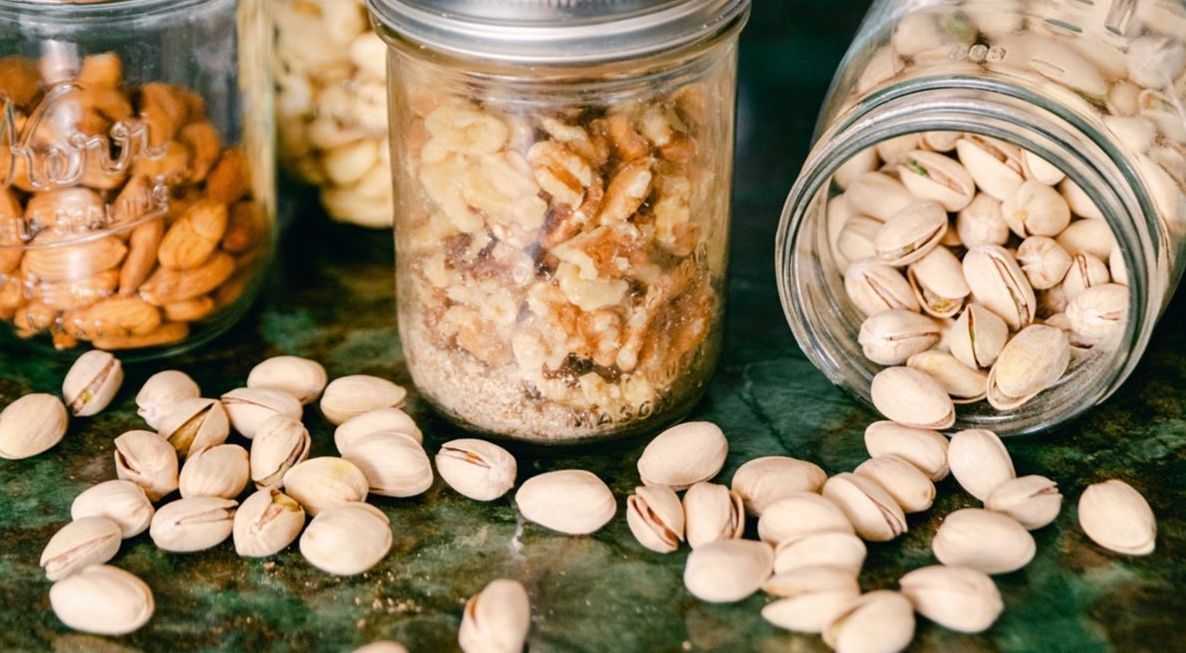Menopause and Stomach Bloating
Oct 22, 2025
The Digestive Fix That Actually Works
If you're navigating perimenopause or menopause and finding yourself uncomfortably bloated, this is one of the most common complaints during the menopausal transition. That distended, gassy, "nothing fits" feeling in your belly is one of the most common complaints during the menopausal transition. But your bloating isn't a hormone problem that needs fixing—it's a digestion problem that needs support.
When you understand how your digestive system works and give it the support it needs, you can dramatically reduce bloating and feel more comfortable in your body during this transition.
The Reality of Menopausal Bloating
You wake up with a relatively flat stomach, but by afternoon you look six months pregnant. Your waistband becomes unbearably tight. Some days the bloating is so bad you avoid certain clothes or cancel plans altogether. Foods that never bothered you before now leave you miserable for hours.
The frustration is real—you're doing everything "right" with your diet, but your belly tells a different story. This isn't in your head, and it's not something you just have to accept. Understanding why menopause triggers bloating is the first step to real relief.
Why Menopause Makes Bloating Worse
During perimenopause and menopause, declining estrogen levels create a perfect storm for digestive distress:
- Reduced stomach acid production: Estrogen helps stimulate the production of hydrochloric acid. As estrogen drops, so does your stomach's ability to produce the acid needed for proper digestion.
- Slower motility: Hormonal changes can slow down the movement of food through your digestive tract, leading to fermentation, gas, and that uncomfortable bloated feeling.
- Increased stress response: The menopausal transition often coincides with increased stress, which shifts your body out of the calm, parasympathetic state needed for optimal digestion.
- Compromised bile flow: Hormonal shifts affect liver and gallbladder function, making it harder to digest the healthy fats your body desperately needs during this time.
The result? Food that isn't properly broken down ferments and putrefies in your gut, creating gas, bloating, and a cascade of uncomfortable symptoms. But understanding the digestive journey from mouth to gallbladder reveals exactly how to address this problem at its root.
Are you Masticating? The Power of Proper Chewing
Glad to have your attention! Your salivary glands play a huge role in preventing menopausal bloating that most women completely overlook.

Your mouth produces enzymes called salivary amylase that initiate the breakdown of carbohydrates. Let’s imagine the all too common 10 minute meal; wolfing down a burger before boarding a flight, inhaling a sandwich in-between work meetings, stuffing anything into our mouths as we do the endless tasks of running a household, scrolling through phones while we chew.
Here's the problem: If carbohydrates reach your stomach without being properly coated with salivary amylase, they ferment in your gastrointestinal tract, producing gas and bloating. This is especially problematic during menopause when your gut is already compromised.
You can eat the healthiest diet in the world, but if your digestive system is broken, you won't absorb most of the nutrients. The process depends on thoroughly chewing your food.
The solution is beautifully simple: Slow down. Sit away from screens. Notice the colors, smells, and textures on your plate. Take small bites and chew slowly. This isn't just pleasant—it's powerful medicine for you, especially during this pivotal transition.
Your Stomach Needs Acid, Not Acid Blockers
Here's where conventional wisdom gets it dangerously wrong. THEY may tell you your stomach is too acidic and prescribe acid blockers (Tums, Pepcid, Nexium, Prilosec).

But here's the truth: You're experiencing reflux and bloating because you aren't making enough stomach acid, not too much. And menopause makes this worse.
Your stomach needs enough hydrochloric acid to lower its pH to 1.5-3. When estrogen declines, acid production decreases. Add midlife stress, and you're producing even less.
Without enough stomach acid, proteins don't break down—they putrefy. Food sits fermenting, creating gas. The pyloric sphincter won't let food pass because the pH isn't right. Pressure builds, and that partially digested, bubbling food refluxes up.
The vicious cycle: Low acid → reflux → acid blocker → even less acid → worse bloating.
Taking acid blockers leads to bone loss, dementia risk, and SIBO—all things menopausal women are already at higher risk for. If proteins aren't digested, you won't absorb amino acids like tryptophan needed for serotonin production. Mental health really does begin in the gut.
What helps instead: Eating in a calm, relaxed state, consuming nutrient-dense foods that support hydrochloric acid production, managing stress, and natural protocols to reestablish proper stomach pH such as taking diluted apple cider vinegar with meals.
Don't Let Them Take Your Gallbladder
Hold on to your precious gallbladder! This is especially important during menopause, when gallbladder problems become more common.
THEY may tell you that you don't really need it, that you can live a regular life without it. But your gallbladder is essential for digesting the healthy fats that are critical during menopause for hormone production, brain health, and reducing inflammation.

Your gallbladder releases bile to emulsify fats. Healthy fats—wild fish, pasture-raised animals, grass-fed butter, olive oil, avocados, nuts, and seeds—make up every cell in your body and are key for vitamin absorption and hormone synthesis.
The problem: Low-fat diets (perhaps to manage menopausal weight?) prevent your gallbladder from releasing bile. Over time, bile thickens and forms stones. Poor gallbladder function means fat malabsorption, leading to rancid fats, gas, loose stools, and more bloating.
During menopause, when you need healthy fats more than ever, you absolutely need your gallbladder functioning well.
Common Mistakes That Make Menopausal Bloating Worse
Many women unknowingly make choices that compound the problem:
Increasing fiber intake without fixing the underlying digestive issues. Fiber is non-negotiable for good health—you absolutely need it. But if your stomach isn't producing enough acid, that healthy fiber sits in your gut fermenting instead of moving through efficiently. The answer isn't less fiber; it's better digestion so your body can handle the fiber it needs.
Going low-fat to manage weight. This devastates your gallbladder. Without dietary fat to stimulate bile release, bile thickens and you set yourself up for gallstones and worse fat malabsorption.
Relying on digestive enzymes as a band-aid. These don't address the root problem. If you're not chewing properly, not producing stomach acid, and eating stressed, no amount of enzymes will fix the underlying dysfunction.
Eliminating healthy foods unnecessarily. Often the problem isn't the food itself but your inability to digest it properly. Address your digestive function first before cutting out nutrient-dense foods.
Accepting acid blockers long-term. What starts as occasional Tums becomes daily Prilosec, without addressing why you needed it. Meanwhile, nutrient absorption declines, bone density suffers, and bloating gets worse.
The Path Forward: Healing Digestion to Ease Your Menopausal Transition
The uncomfortable truth is that you can't separate menopausal symptoms from digestive health. That bloated belly isn't just about declining hormones—it's about a digestive system that needs support to work properly during this transition.
You have tremendous power to change this:
- Slow down and chew: Make eating a mindful, sensory experience. Your body will reward you with better digestion and less bloating.
- Support stomach acid production: Focus on nutrient-dense foods, manage stress, and eat in a relaxed state. Avoid acid blockers that make the problem worse.
- Include healthy fats: Don't fear fat during menopause. Your gallbladder, hormones, and cells need it. Just make sure they're quality fats from whole food sources.
- Address the root cause: Rather than masking symptoms with over-the-counter medications, work with someone who can help you restore proper digestive function through natural protocols.
Digestion doesn't need to be complicated or mysterious. When you give your body the conditions it needs—proper chewing, adequate stomach acid, stress management, and healthy fats—it knows exactly what to do.
Your menopausal transition can be so much more comfortable when your digestive system is functioning as it should. That bloated belly? It's not something you just have to live with. It's a sign that your body needs support, and now you know exactly where to start.
Ready to Transform Your Digestive Health?
If you're tired of feeling bloated and frustrated during menopause, real, lasting relief is possible. You don't have to accept digestive misery as part of this transition.

Working with me means getting to the root cause, not masking symptoms. I use natural protocols to:
- Restore proper stomach acid production for nutrient absorption
- Rebalance your digestive system from mouth to gallbladder
- Support hormone and neurotransmitter production
- Eliminate the need for acid blockers that worsen digestion
- Help you eat confidently without bloating or discomfort
My clients tell me they can't believe how much better they feel—not just less bloating, but improved energy, better mood, clearer thinking, and renewed control over their bodies during menopause.
This isn't about restrictive diets. It's about understanding how your body works and giving it what it needs to thrive. It's about feeling at home in your body again.
The menopausal transition doesn't mean accepting digestive distress. With the right support, you can feel vibrant, comfortable, and confident.
Ready to stop treating symptoms and start healing? Let's create a personalized plan that addresses your unique digestive challenges and supports your body through this transition with grace and ease.
I will guide you back to metabolic health during perimenopause and the menopausal transition with nutritional healing and sustainable lifestyle strategies
Let's Connect
Get my email newsletter with health and wellness tips and information about how to work with me.

